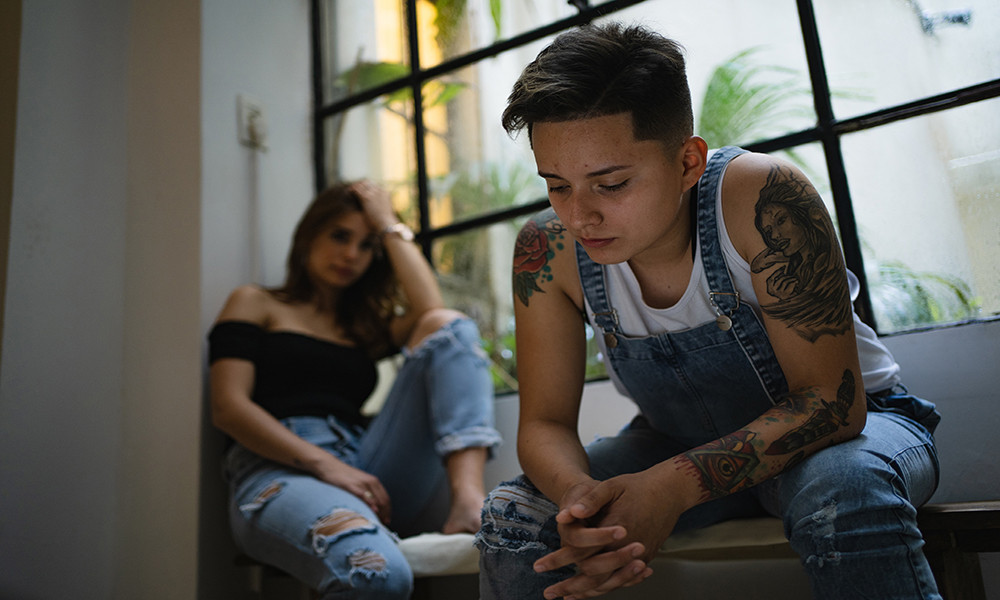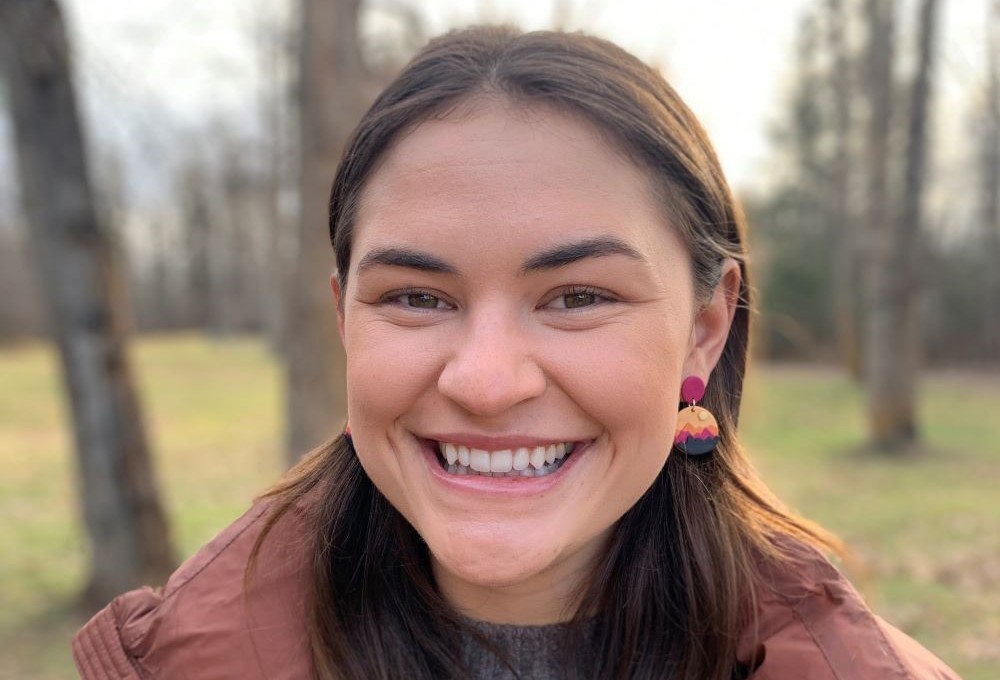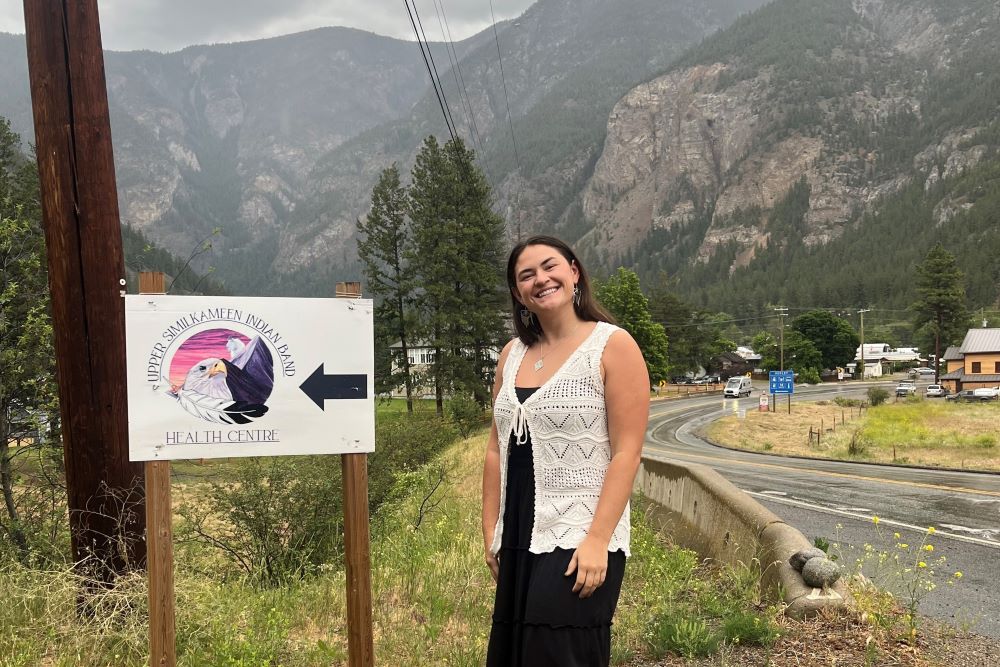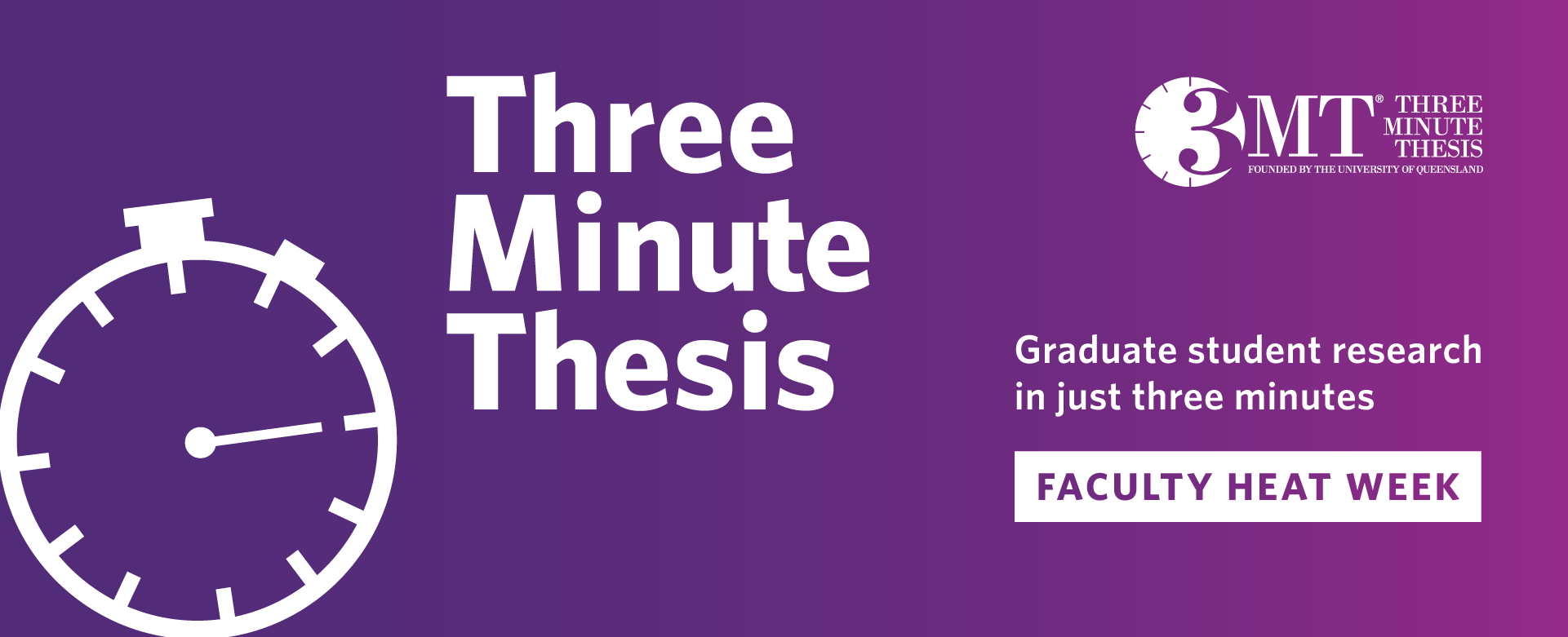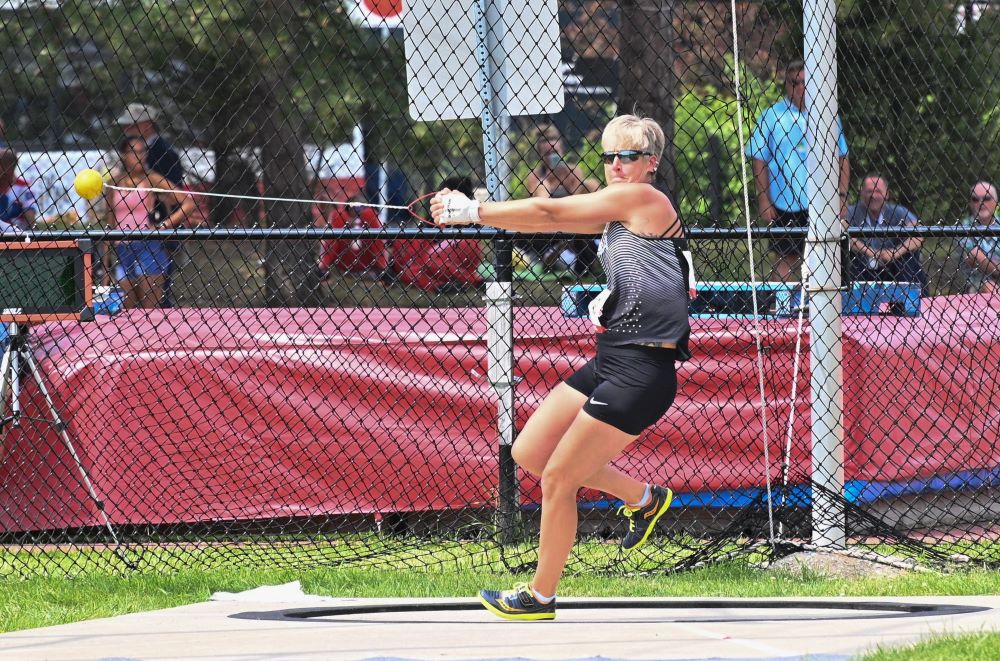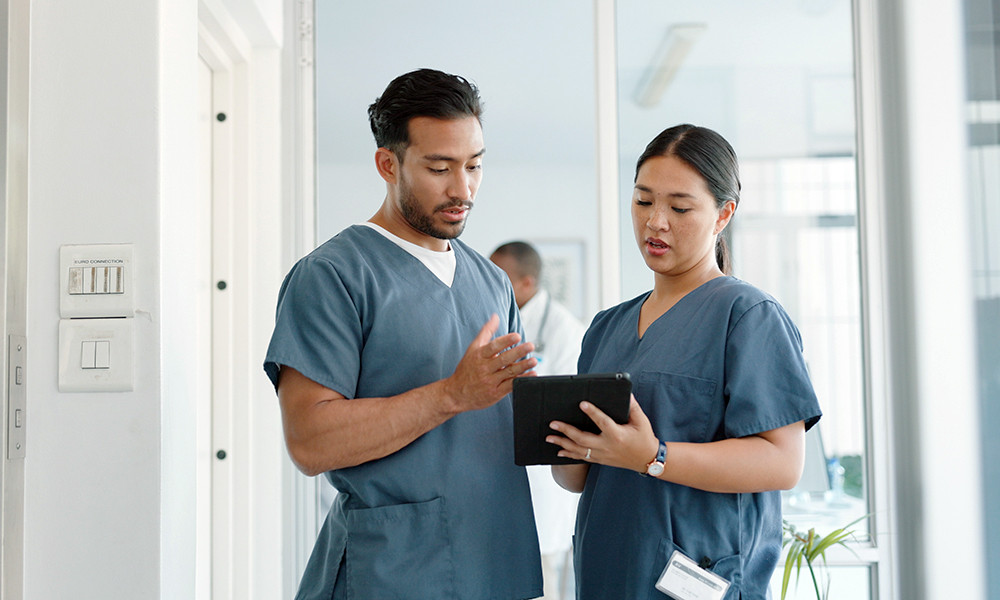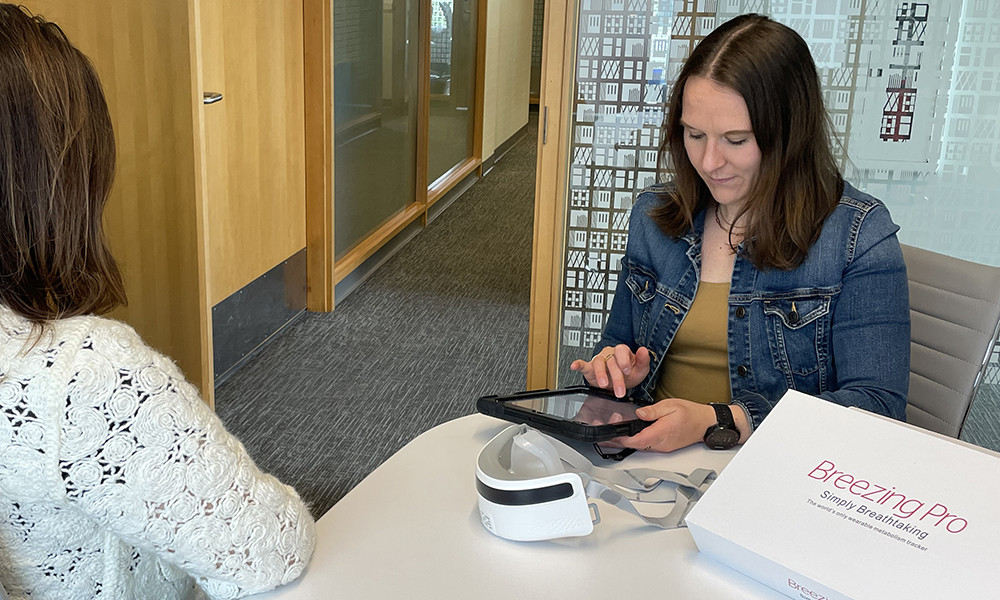
Doctoral student Sarah Craven demonstrates how the home testing device, called Breezing, works.
Health researchers at UBC Okanagan are hoping a new device—that people can use to measure their resting caloric consumption without visiting a lab—may lead to better health for people who struggle with their weight.
Dr. Sarah Purcell is a researcher with UBC’s Southern Medical Program and UBCO’s School of Health and Exercise Sciences. She is currently working on a study that will have people do home tests of their resting metabolic rate (RMR)—the calories burned while doing nothing—by using a portable non-invasive machine that measures respiratory gas.
Previous studies involving RMR have required people to visit research labs and lie quietly for a specific time while they are monitored.
But this latest study will examine the feasibility of the portable device and determine if it can help people develop healthier habits by understanding their RMR and how their bodies use the calories they consume. This is especially important for people struggling with obesity as it might help them develop new habits to improve their daily eating habits and activity levels, she explains.
“In Canada, there is a high prevalence of obesity among adults and it is the leading risk factor for chronic diseases,” says Dr. Purcell. “Behavioural interventions that target dietary intake and physical activity changes are a cornerstone for managing obesity. However, these interventions typically have short-term success and it’s been proven that long-term weight maintenance is poor. Within one year most of the lost weight is regained.”
Dr. Purcell says there is a need to identify and evaluate additional strategies to help people keep the weight off and stick with physical activity and dietary changes for sustained weight loss. That’s where this new RMR measuring device comes in.
“Dietary modifications in weight-loss interventions rely on prescribed recommendations for energy intake requirements, which are typically estimated by predictive equations for RMR using one’s body size, demographics and an activity factor,” she says. “But with advances in indirect calorimetry technology, RMR monitoring can now be done at home.”
Working with Dr. Purcell is doctoral student Sarah Craven, who is hoping to recruit about 10 people with obesity to participate in the study.
“The novel part of our study is that we’re validating this equipment to determine if it’s feasible. And our study participants can use this equipment at home. No more trips to the lab,” says Craven. “It takes about 20 minutes and people can do it from the comfort of their own homes.”
Their study will involve two groups—people living with obesity and people living without obesity—and the researchers will monitor the accuracy, adherence and acceptability of the device across the two groups.
If this study determines the device is feasible—it’s easy to use and study participants stick with it—then Craven suggests it can be integrated into further, more in-depth studies or clinical applications that can help people monitor their RMR and daily caloric intake. And eventually take steps to improve their health.
“With this advancement in technology, RMR monitoring can now be easily done at home and can provide valid ongoing feedback to generate personalized recommendations for energy intake targets,” says Dr. Purcell. “Repeated RMR monitoring and feedback may offer a novel avenue for intervention tailoring and provide additional psychological and behavioural effects that have yet to be explored.”
Study participants will have their metabolism, body composition, physical activity and caloric intake measured during a six-week test period.
People with larger bodies or living with obesity who are interested in learning more about the study can take a prescreening questionnaire or email Sarah Craven at nutrition.metabolism@ubc.ca.
The post New technology may lead to improved health and weight management appeared first on UBC's Okanagan News.
